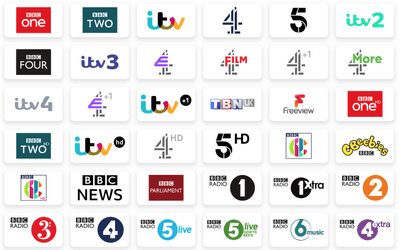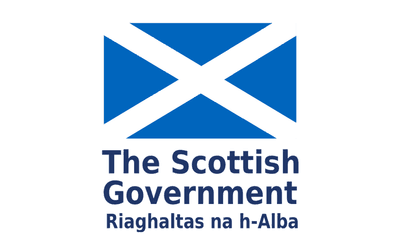Broadband coverage statistics
- There are now over 28.2 million fixed broadband lines in the UK
Ofcom’s latest telecommunication report shows this latest figure, which is an increase of 38K (0.1%) from the previous year.
- Full fibre coverage is now at 18.7 million homes (62%)
This has been driven mainly by the larger fibre operators but also supported by a number of smaller providers across the UK serving individual communities and regions (source: Ofcom).
- Superfast broadband coverage across the UK overall remains at 97%
Availability of superfast broadband (not full fibre, but partial fibre which can obtain speeds of 30-80Mbps), offering download speeds of at least 30 Mbps, is available at 97% of UK homes. The final 3% of properties are likely to be in harder-to-reach areas, which more recent publicly-funded schemes could help (source: Ofcom).
The number of premises still unable to get access to decent (>10Mps download speed) broadband, when factoring in fixed wireless and fixed line networks, has dropped from 61,000 to 57,000 premises, of which around 47,000 are not expected to be covered by rollout of publicly funded schemes within the next twelve months (source: Ofcom).
- The best and worst parts of the UK for superfast full-fibre broadband speeds are…
Think Broadband has published its latest report on home internet in the UK and has revealed the 20 worst and best parliamentary constituencies for full-fibre coverage across the UK for 2024.
The best 10 constituencies in the UK for full-fibre broadband coverage:
- City of Kingston upon Hull — 99.7% full-fibre coverage
- Mourne and Down — 96% full-fibre coverage
- Ards and North Down — 95.8% full-fibre coverage
- Belfast — 95.8% full-fibre coverage
- Coventry District — 95.1% full-fibre coverage
- Lisburn and Castlereagh — 95.1% full-fibre coverage
- Derry and Strabane — 94.1% full-fibre coverage
- Armagh, Banbridge and Craigavon — 93.9% full-fibre coverage
- Milton Keynes — 93.7% full-fibre coverage
- Mid and East Antrim — 93.4% full-fibre coverage
The worst 10 constituencies in the UK for full-fibre broadband coverage:
- Blaby District — 18.7% full-fibre coverage
- Tamworth District — 17.7% full-fibre coverage
- Perth and Kinross — 16% full-fibre coverage
- Argyll and Bute — 13.6% full-fibre coverage
- Harlow District — 13.5% full-fibre coverage
- West Dunbartonshire — 10.7% full-fibre coverage
- Orkney Islands — 8% full-fibre coverage
- Na h-Eileanan an Iar**— 6.3% full-fibre coverage**
- Shetland Islands — 5.8% full-fibre coverage
- Isles of Scilly — 2.6% full-fibre coverage
Broadband providers
- BT have the biggest market share of broadband customers (10.4 million) in the UK
Seven big providers dominate the UK broadband world. So who have the top 3 of the market share out of these? Think Broadband have revealed in their latest 2024 report:
- BT Group (this includes BT, EE and Plusnet) — 10.4 million customers (36% of UK market share)
- Sky — 5.7 million customers (20% of UK market share)
- Virgin Media — 5.7 million customers (20% of UK market share)
- CityFibre have the biggest market share (2.9 million) of alternative network broadband customers in the UK
The UK has many alternative network operators (altnets) that have their own network different to Openreach (Sky, BT, NOW, TalkTalk, Plusnet) that run full-fibre only packages. Despite being less known, these smaller networks are essential part of the UK’s broadband infrastructure and many have provided a critical lifeline for local communities desperate for fast broadband. They are also often cheaper.
Here are the top three full-fibre altnets for 2024 (source: Thinkbroadband)
- CityFibre — now in over 2.9 million UK premises
- Community Fibre — now in over 1.3 million UK premises
- YouFibre — now in over 745K UK premises
Broadband pricing
- £27-33 is the average price of consumer fibre*
Think Broadband track average broadband prices by speed category for major providers to provide market guidance. Based on a 18-24 month contract, here are their findings for 2024.
*It’s important to note that lesser known alternative networks (altnets) are considerably cheaper that the prices below and weren’t included in these stats. This will be a factor to consider if thinking about switching your provider.
50-80 Mbps download — £27-33 per month
150 Mbps download — £27-41 per month
500 Mbps download — £33-51 per month
1 Gbps — £42-61 per month
Broadband switching
- 46% of broadband customers say they have never switched providers
A recent survey by Which? reveals that almost half of the UK have never changed providers, but only a third of this number said it was because they were happy with their current deal.
- The most common reason of not switching is: ‘I can’t find a better deal'
Which? reveals the main reasons of not switching:
- Just under one in five said because they hadn’t found a better deal
- 18% said they were loyal to their current broadband provider
- 11% said they were concerned that their speed would drop if they switched
- 10% said they didn’t want to lose their email address
- There are more than 7.4 million customers out of their initial contract
Ofcom reports that millions of people in the UK are out of contract for their phone, broadband or pay-TV service and paying too much because of this.
- Switching providers or haggling could save an average of £98 per year
Which? research shows that this can depend on the provider to. Those who ditched Sky for a new brand deal saved an average of £126. Customers who left Virgin Media saved an average of £123.
Broadband affordability
- 91% of eligible households aren’t claiming the social tariffs (available to those on certain benefits) they are entitled to
Ofcom have reported that millions are missing out on the cheaper broadband packages they are eligible for, that’s £824 million of support going unclaimed. See if you could be entitled with our guide to discounted broadband for Universal Credit and other benefits.
- One million people cut off their broadband in the last year
New research from Citizen’s Advice shows this sad statistic which seems to be mainly down to the cost-of-living crisis leaving customers unable to afford internet costs.
- Current available social broadband tariffs in 2024 cost between £12-22 per month (source: Ofcom)
Most of these will be on superfast broadband speeds over 30Mbps
- There are currently 35 different broadband deals on social tariffs
Ofcom has a full list of social tariffs for 2024.
Broadband complaints
- NOW Broadband is the most complained about provider
Ofcom’s latest complaint data shows that NOW broadband received 22 complaints per 100,000 customers in its latest 2024 report.
- Sky broadband has the fewest complaints
Ofcom’s latest complaint data shows that Sky broadband received 5 complaints per 100,000 customers.
- The most common reason for broadband complaints are ‘faults, service and provisioning’
Ofcom’s complaint data shows that 37% of customers complain because of ‘faults, service and provisioning’, followed by ‘complaints handling’ (32%) and ‘billing, pricing and charges’ (19%).
- Over 50% of broadband customers have experienced problems with their connection in the past year
According to the 2024 Which? satisfaction survey, more than half of participants revealed they had experienced very slow speeds, connection drop outs, outages and router problems.




